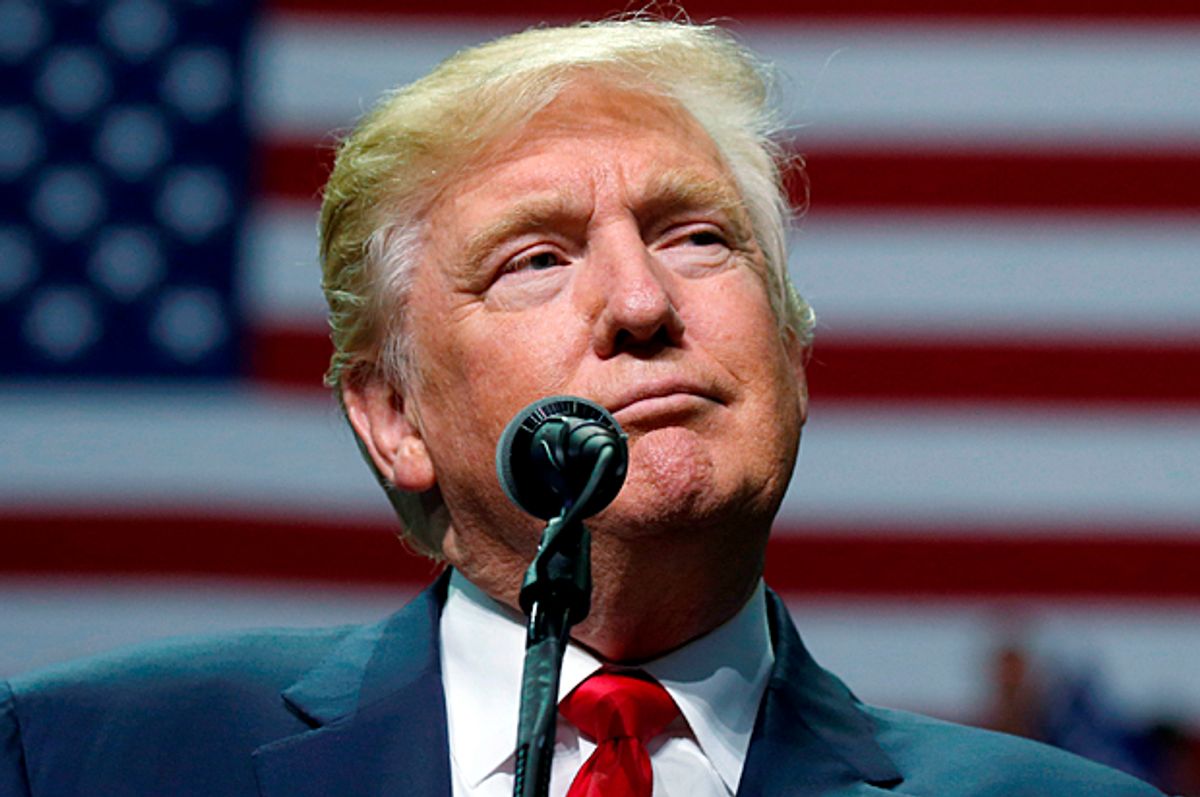This article was originally published on The Conversation. Read the original article.
This was one of the most contentious elections in US history — and now it’s ended in a shocking upset: Donald Trump appears to have won a majority in the electoral college, which if confirmed will make him the president-elect of the United States. The rest of the world now has to work out what happens next.
Even before Trump pulled ahead on the night, the campaign itself was disastrous for America’s reputation abroad, exposing the worst in U.S. politics. Trump’s views on Muslims, Latinos, Blacks and women earned him global notoriety. He also alarmed many of the US’s key allies with his opinions on NATO and the use of nuclear weapons. Democratic candidate Hillary Clinton suffered from her own problems, branded by Trump and others as untrustworthy and “crooked”. Both candidates had historically low likability ratings.
Many Americans on both sides apparently chose whichever candidate they considered the lesser of two evils. But when it comes to political experience and capability, the difference between the two candidates is very, very stark.
Whether or not you agree with her views, Clinton is experienced and knowledgeable about policy and how politics works in Washington and around the world. Trump, on the other hand, seems ill-informed about almost all global issues. He seems to have no understanding of how the checks and balances built into the US government work. And his ideology, to the extent it can be discerned, seems to border on the anarchic. Four former living US presidents have deemed Trump unfit to the lead the country.
So a Trump victory won’t just do incredible damage to the US itself — it will badly tarnish America’s image abroad and will profoundly transform its relationship with almost all countries around the world.
Xenophobia fired up
One of the worst effects of the campaign was Trump’s success at firing up openly racist elements of his base. His pitch to white non-college educated voters was a direct attempt to play into their deep fears about the U.S.’ rapidly changing demographics. By 2035, white Americans will no longer be the majority group, and not long after that they could be outnumbered by Hispanics. For many white Trump supporters, controlling immigration, sending immigrants home and building a wall to keep them out is the only way to their fears.
These tensions are not going to disappear with the election over. Anger that may have been suppressed is now out in the open.
Mobilizing this base has particularly serious implications for the US’s relationships with its Latin American neighbors – and especially Mexico. Mexicans have mostly lampooned Trump and they turned on their own president, Enrique Peña Nieto, when he agreed to meet with the Republican nominee in August. The US is Mexico’s biggest trading partner and a Trump presidency could gravely damage that relationship while a Clinton presidency would in all probability have been more of the same.

EPA/Jorge Nunez
Europe, meanwhile, is still processing the shock of the UK’s vote to leave the European Union, while other European countries are seeing a rise of xenophobic right-wing populist parties. The Trump upset will be alarming for Europe. In fact, one Pew Research poll found that Trump’s approval rating in Europe was only 9%. In Japan, a vital American ally, his disapproval rating was 82%.
Europeans have been appalled by Trump’s disregard for NATO and claimed that he would not rule out using nuclear weapons. In Japan, many fear that a Trump presidency would lead to the end of their hard-won security ties with Washington. Trump has said that Japan should end its dependence on the US’s nuclear arsenal and develop the ability to defend itself. This could lead to an arms race in an already tense region, which could be highly destabilizing.
More resentment in the Middle East
In the Middle East, there even is more pessimism. Clinton was the more stable candidate, though not necessarily a popular one. But there is much greater uncertainty when it comes to Trump. As Harvard Professor Stephen Walt noted, with Trump: “We have no idea whatsoever what he will do, and neither does he”.
Many Muslims in the Middle East are also fully aware of Trump’s powerful anti-Muslim rhetoric and talk of bans. Overall, the election has tarnished the image of the US in the Middle East even further. Hisham Melhem, a correspondent for Lebanon’s leading daily newspaper An-Nahar, told the New York Times many people there will now have entirely disregarded any reputation it had as “a beacon of progress and enlightenment”.
Then there’s Russia, whose government was accused of meddling in the election in Trump’s interest. Vladmir Putin has denied this – but regardless, a Trump victory plays into his hands.

Alexei Druzhinin/Sputnik/EPA
A former KGB agent, Putin is confident that Trump will be easy to manipulate; Clinton derided her opponent as the Kremlin’s “puppet.” He is keen to extend Russia’s sphere of influence in the Middle East and beyond – and this chaotic election has proved that the world’s supposed sole superpower is in fact incredibly vulnerable. This has emboldened Russia in its actions in Syria, undermining the US’s chances of helping to end the conflict any time soon.
This election has left America's image abroad in tatters, alarmed the world of the dangers of a demagogue and has polarized the country more than ever. The very legitimacy of the U.S. system for selecting a president has been questioned – and it may now have produced one of the most dangerous American leaders ever elected.
![]()
Natasha Ezrow, Senior Lecturer, University of Essex



Shares